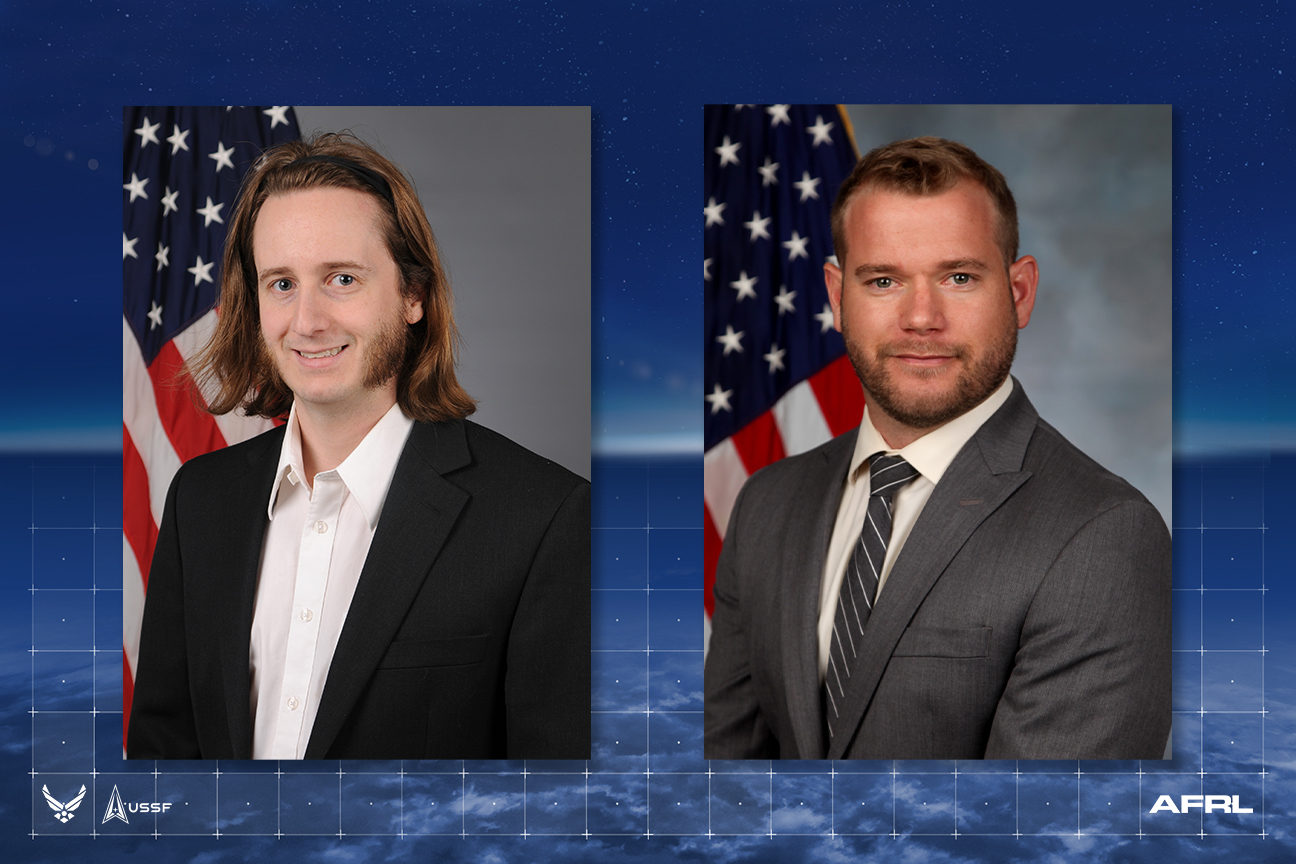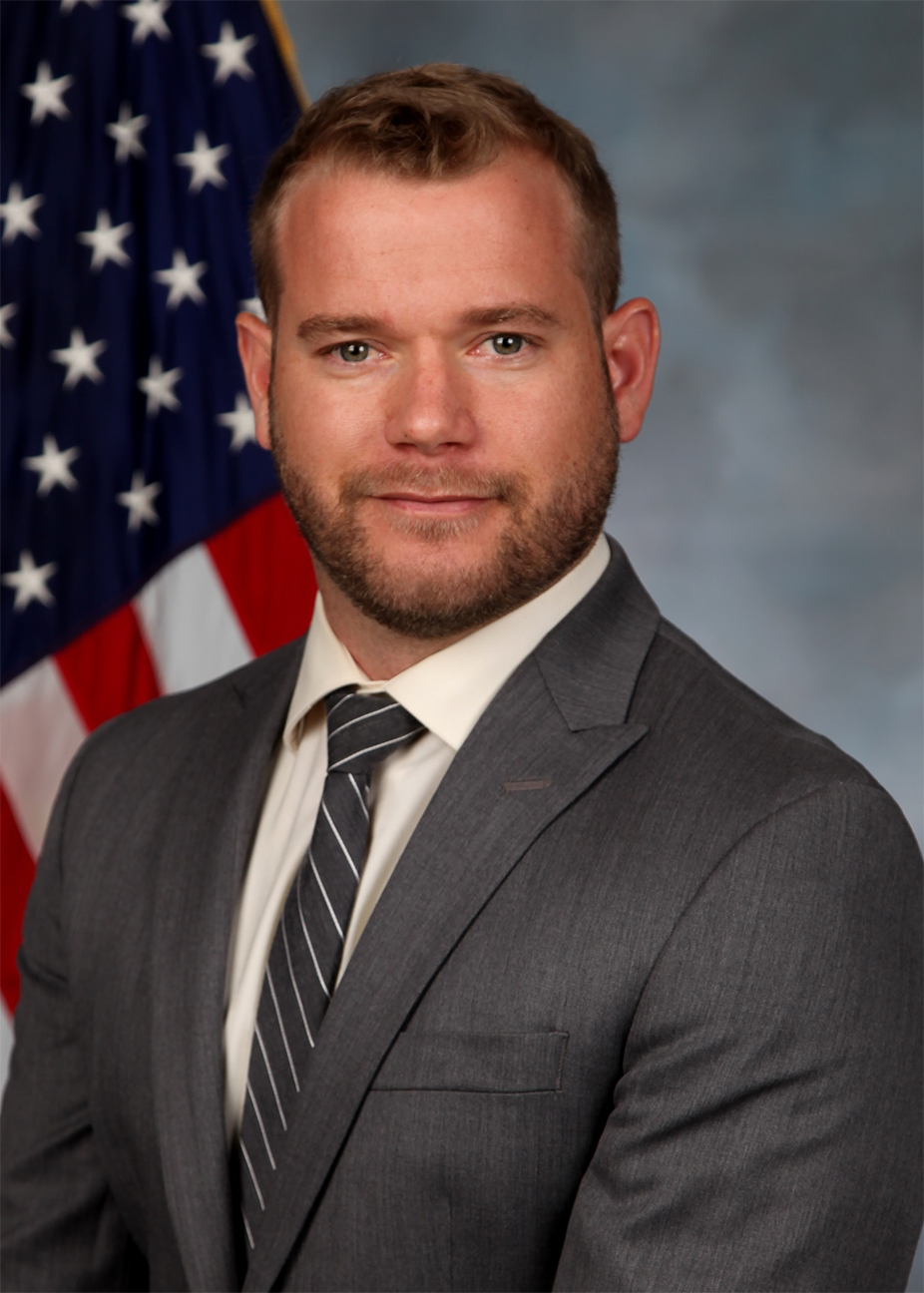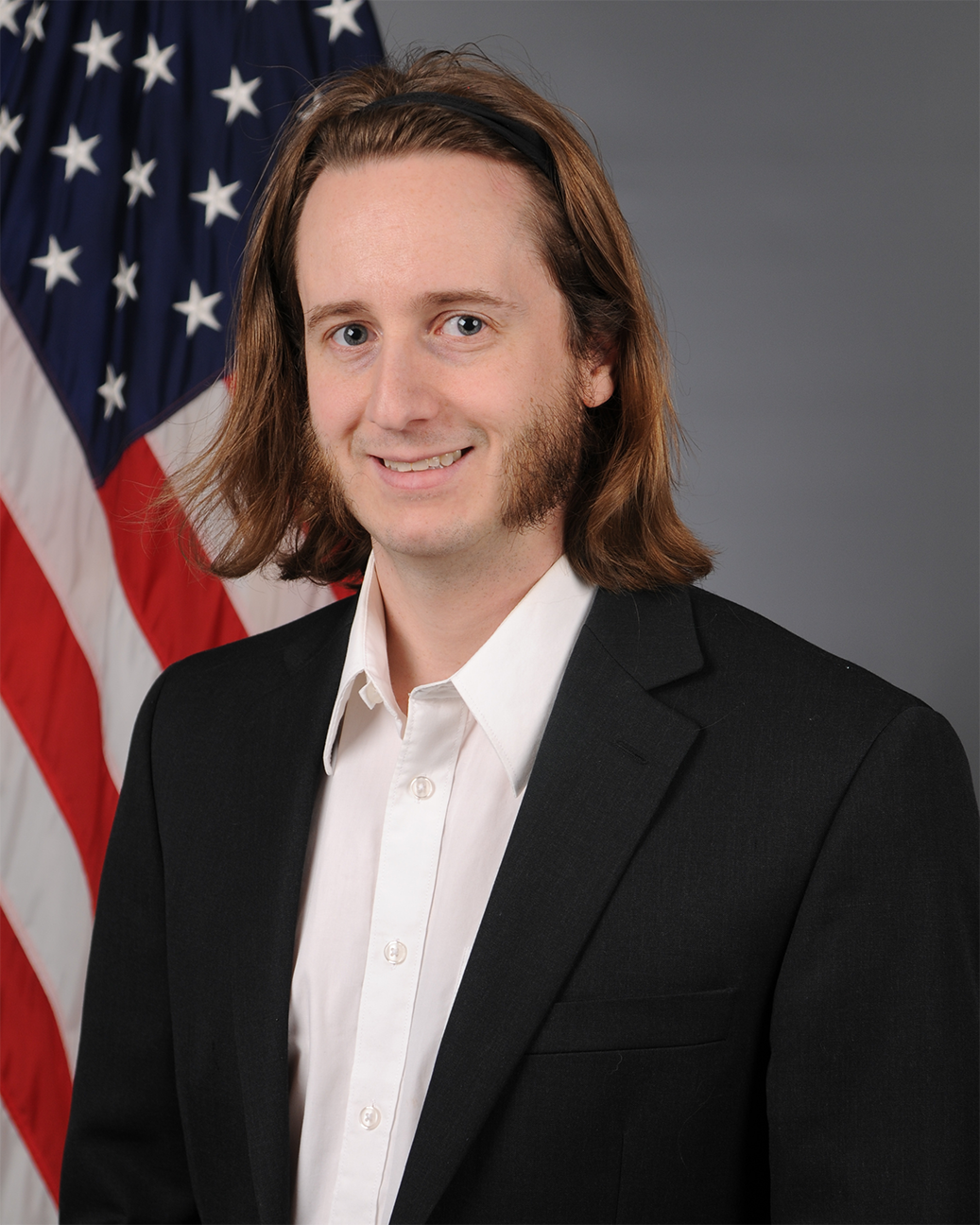US Air Force recognizes AFRL researchers
KIRTLAND AIR FORCE BASE, N.M. (AFRL) — The Air Force Research Laboratory, or AFRL, recently announced that engineers Dr. Andrew J. “AJ” Metcalf and Dr. Preston T. Webster are the U.S. Air Force nominees for the 74th Annual Arthur S. Flemming Award. The nominees are among hundreds of scientists and engineers at AFRL’s Space Vehicles Directorate located on Kirtland Air Force Base, New Mexico.

Dr. Preston T. Webster, left, and Dr. Andrew J. “AJ” Metcalf, right, are the U.S. Air Force nominees to the 74th Annual Arthur S. Flemming Award. Webster leads an Air Force Research Laboratory team that develops novel space sensor technologies for the nation’s infrared surveillance, missile warning and tracking, weather monitoring and other various systems. Metcalf serves as the Air Force Research Laboratory space mission area lead in the Office of the Deputy Technology Executive Officer for Space Science and Technology. Flemming Award winners will be announced in June 2023 at a ceremony to be held at George Washington University in Washington D.C. (U.S. Air Force photo).
Established in 1948, the Flemming Award honors federal employees with 3-15 years of service who have been nominated by their federal agencies, selected through a competitive judging process and have made significant contributions to the federal government. Winners are selected from across the federal government in three categories — basic science; applied science, engineering and mathematics; and managerial or legal achievement.
AFRL Commander Maj. Gen. Heather Pringle, in her announcement to the workforce, congratulated Metcalf and Webster and said, “Being an Air Force-level nominee is a huge deal and these outstanding individuals have proven why they were selected.”
U.S. Space Force, or USSF, member Metcalf was recognized for his accomplishments in the category of applied science, engineering and mathematics. The Madison, Wisconsin, native has been with AFRL for five years. He is the AFRL space mission area lead in the Office of the Deputy Technology Executive Officer for Space Science and Technology — an office under the direct authority of Pringle, who in addition to being the AFRL commander, serves as the Department of the Air Force’s chief technology executive officer.
Metcalf is responsible for a $2.3 billion space technology portfolio that reaches across the AFRL enterprise. In addition, he manages five other space mission area leads who interface with external stakeholders and are responsible for customer engagement and bringing awareness of programs throughout AFRL and the national space community.

Dr. Andrew J. “AJ” Metcalf is the U.S. Air Force nominee to the 74th Annual Arthur S. Flemming Award in the applied science, engineering and mathematics category. Metcalf serves as the Air Force Research Laboratory space mission area lead in the Office of the Deputy Technology Executive Officer for Space Science and Technology. Flemming Award winners will be announced in June 2023 at a ceremony to be held at George Washington University in Washington D.C. (U.S. Air Force photo)
“I am extremely appreciative of my colleagues and leadership for providing the opportunities to advance critical space research that supports the next generation of Space Force operators,” Metcalf said. “I cherish the flexibility I have had as an AFRL scientist in work that encompasses bench-level scientist, principal investigator, program manager, and various strategic leadership roles across the space enterprise.”
Metcalf said his responsibilities include five space flight experiments totaling $341 million and three ground demonstrations valued at $61 million.
“These state-of-the-art technologies are providing solutions that address top priorities for several of our country’s preeminent strategic systems,” Metcalf said. “They include ICBMs in support of nuclear deterrence, communications and the global positioning system, a service the USSF provides free of charge across the globe.”
Webster, nominated in the basic science category, hails from Bloomfield, Iowa and joined AFRL in 2018. He leads a research team that develops novel space sensor technologies for the nation’s infrared surveillance, missile warning and tracking, weather monitoring and various other systems. His work focuses on high performance and highly manufacturable sensor solutions that can tolerate the harsh space radiation environment to ensure the nation’s satellites remain resilient and robust.

Dr. Preston T. Webster is the U.S. Air Force nominee to the 74th Annual Arthur S. Flemming Award in the basic science category. Webster leads an Air Force Research Laboratory team that develops novel space sensor technologies for the nation’s infrared surveillance, missile warning and tracking, weather monitoring and other various systems. Flemming Award winners will be announced in June 2023 at a ceremony to be held at George Washington University in Washington D.C. (U.S. Air Force photo)
“I am tremendously grateful to my team of graduate students, research scientists and technicians that all contributed to the advancement of the technologies we are developing at AFRL,” Webster said. “I am also appreciative of our program leadership who over the past decades developed our advanced laboratory facilities that allow AFRL to conduct groundbreaking research.”
Webster said for decades, having the highest performance sensors was the ultimate high ground and was enough to maintain the U.S.’s economic dominance and the warfighter’s asymmetric advantage. However, he stated the situation has changed.
“Our nation is rapidly reaching a point where this strategy of having the ‘best things’ will no longer be as effective as it once was,” Webster said. “New innovations in spacecraft launch technology have dramatically reduced the costs to launch satellites into orbit, enabling the U.S. and our adversaries to launch more spacecraft more rapidly than at any point in history.”
Webster said we still want the best sensors in space, but now we must prioritize sensor technologies that are manufacturable and radiation-tolerant to outfit the large numbers of next generation satellites.
“We must ensure the nation’s ability to provide critical information to the warfighter is resilient to disruption so that the U.S. armed forces are never left blind on the battlefield,” he stressed.
If selected at the next level of competition, Metcalf and Webster will be honored in June at the Flemming Award ceremony held at the George Washington University Trachtenberg School of Public Policy and Public Administration in Washington D.C.
About AFRL
The Air Force Research Laboratory, or AFRL, is the primary scientific research and development center for the Department of the Air Force. AFRL plays an integral role in leading the discovery, development and integration of affordable warfighting technologies for our air, space and cyberspace force. With a workforce of more than 11,500 across nine technology areas and 40 other operations across the globe, AFRL provides a diverse portfolio of science and technology ranging from fundamental to advanced research and technology development. For more information, visit: www.afresearchlab.com.
